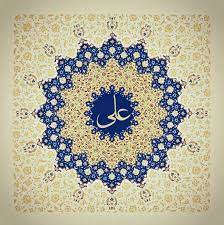
“Yawm‐e Ali” Among The Ismaili Shias

Yawm‐e Ali – literally the “Day of Ali” – is the birthday anniversary of Hazrat Imam Ali (a.s.) which is commemorated on the 13th Rajab. According to tradition, Hazrat Ali’s birthday is on 13 Rajab in the year 599 CE.
He was Prophet Muhammad’s companion, son-in-law, and cousin who married his daughter Bibi Fatimah Al Zahra (Blessings of Allah Be Upon Her). His sons were Hazrat Imam Hassan and Hazrat Imam Hussain (Blessings of Allah Be Upon Them).
This festival of Yawm‐e Ali among the Ismaili Shias is celebrated by the communities who consider it as an opportunity to learn from the life and teachings of their first Imam. According to the Shia doctrine and tradition, Hazrat Ali was the foundation (asas) on which the institution of Imamah got shaped. The significance derives from the fact that one of the central beliefs of Shia theology is based on Imam Ali’s designation (nass) by the Prophet upon the Command of Allah (al-amr), to guide the believers after the termination of the institution of Nabuwah. The Imam’s role is to continue the teaching (ta’lim) and interpretation (ta’wil) of Allah’s Final Message after the demise of the Prophet.
Hazrat Ali is recognized as the most important spiritual and intellectual authority in Shiism after the Holy Prophet. He is also revered by all Sunni and Shia Muslims as the last of the four “rightly‐guided caliphs” (al-khulafa al-rashidun).
Hazrat Ali established a paradigm of Muslim leadership both as caliph and as Imam; this was centered on the ethics of Islam as well as principles of just and moral leadership. He clarified the notion of the intellect as a facet of faith that is to be developed and used in keeping with the ethical imperative of Islam, and which is intimately connected with the spirituality of the faith.
Renewing commitment to Shia principles that Hazrat Ali exemplified, such as the ethics of care, compassion, generosity, integrity, tolerance, forgiveness, brotherhood, and service to others
, is the main thing that happens during Yawm‐e Ali” Among the Ismaili Shias
Hazrat Ali’s place of birth was also unique since he was born in Baitullah, in Mecca. It is a reason that Yawm-e Ali is called “Jashn e Mawlud e Kaba” in Pakistan, India, and some other countries. Muslims all around the world observe the Yawm-e Ali date with high religious enthusiasm. People attend Majalis where Ulemas give sermons on the life and teachings of Hazrat Ali (Blessings of Allah Be Upon Him). They also prepare special food and dishes to offer the Isal e Sawab.